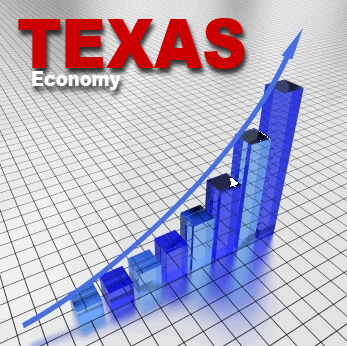Doing Business in Texas: Intro Part 2
In our next installment of Doing Business in Texas we will discuss Texas’ excellent infrastructure and education that have helped position Texas as one of the best places to do business. Texas’ infrastructure is composed of world class airports, highways, ports, and energy systems. The state’s central location and state-of-the-art transportation network provide great access to domestic and global networks.
Infrastructure
Texas has over 380 airports, including 26 major commercial airports, the second largest state system in the United States. Texas has two of the largest major international hubs in Dallas and Houston. Texas is also home to American Airlines and Southwest Airlines, both headquartered in the Dallas-Ft. Worth area.
Texas’ 624 miles of coastline are home to almost 1000 public and private piers or docks. Every year over half a billion tons of goods are moved through our water channels. When the Panama Canal deepening project is completed in 2016, Texas waterways are expected to double the amount of goods handled. 11 of Texas’ 16 deep water ports are designated as foreign trade zones (FTZ). These FTZs allow for informal customs entry, import quotas, and other importation restrictions.
On land Texas has over 310,000 miles of public roads, including 11 primary interstate highways and 7 auxiliary highways. Several of these interstates are major international thoroughfares including I-35, I-29, and I-69. Freight railroads travel on over 10,000 miles of track within Texas, the most in the U.S. The 47 railroad operators transport nearly 400 million tons of freight every year and is the headquarters for the second largest freight operator, BNSF.
Since the discovery of oil in 1901, Texas has been a leader in energy production. Due to the unique geography and expansive natural resources, Texas contributes a large percentage to the production of oil and gas, electric/coal/nuclear, and renewable energy of the nation. Texas is one of the global leaders in refining petroleum products, with 26 major refineries producing more than 4.7 million barrels of crude oil a day. Texas is the only state with its own power grid, completely independent from other national networks. Texas has taken the lead in wind energy production and is home to 6 of the 10 largest wind power projects in the U.S. Texas ranks 6th in the world in wind energy production.
Education
Texas is home to several world renowned research universities, including Rice University and University of Houston in Houston, University of Texas in Austin, and Texas A&M University in College Station. These campuses have an combined enrollment of over 150,000 students. Texas ranks 3rd in the nation for engineering and science doctorates awarded. There is a total of 36 public universities in the state with as many private universities and colleges.
The 1,000 acre Texas Medical Center in Houston is the largest medical complex in the world with 14 hospitals, 3 medical schools, and 6 nursing schools. Over 20,000 doctors, researchers, and scientists contribute daily in the complex. The Center is one of the global destinations for doctors and patients seeking state-of-the-art care.
From it’s unique geography, expansive resources, to the roads, rails, and friendly folks, Texas is one of the premier global locations for doing business. Our next installment will guide you through the business entities used in Texas and the important points about each. For more information about starting your business in Texas and a free legal consultation for your business use the contact form below or call Reidel Law Firm at (832)510-3292.




